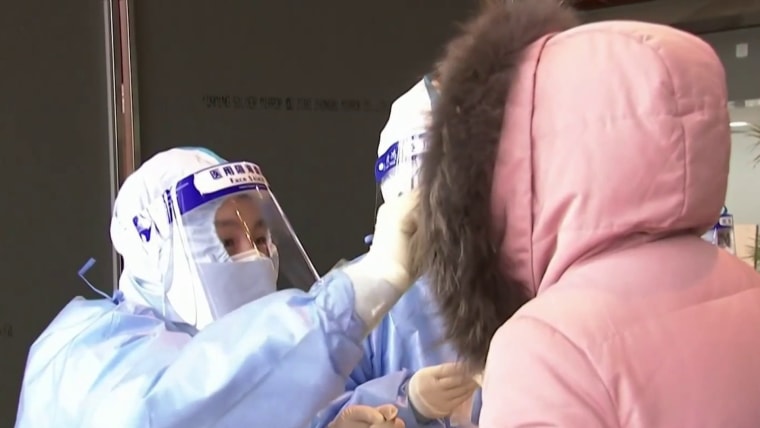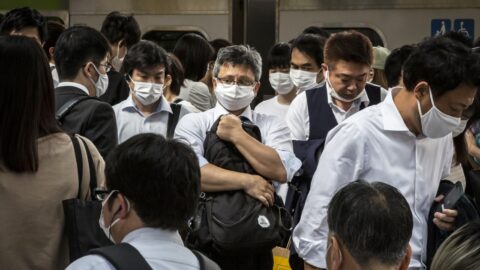HONG KONG — One person toiled at dozens of construction sites all over the city. The other shopped at luxury stores and went skiing. Both got Covid.
The movements of the two coronavirus patients in Beijing, which is trying to tamp down an outbreak before it hosts the Winter Olympics starting this week, painted strikingly different portraits of the city where they reside. The contrast between the two cases has stirred public debate about income inequality in China as President Xi Jinping promises to redistribute wealth from the top down.
Health officials in China, which has been pursuing a “zero-Covid” strategy since the pandemic began, conduct painstaking contact tracing for every case to minimize the risk of further transmission. The activity log they released for the first patient, a migrant worker surnamed Yue, led some online commenters to describe him as “the man living the most arduous life in China.”
According to the activity log, Yue had shuttled between about 30 different Beijing construction sites from Jan. 1 to 18, working day and night across five districts. On New Year’s Day he worked until almost 5 a.m., while on Jan. 10 he was at five different sites in one day. The activity log showed that Yue, 44, had been working for two weeks straight without a day off.
He told Chinese media that he was heading home to Shandong Province for the Lunar New Year holiday when he learned he had the virus.
By contrast, the second patient — a 26-year-old bank employee surnamed Li — visited high-end shopping malls and luxury stores like Dior and the jewelry chain Chow Tai Fook. She also went skiing on the outskirts of Beijing and watched a live comedy show.
Yue, contacted via Weibo, and his wife, contacted via phone, did not respond to requests for comment. Li could not be reached for comment as her full identity is unknown.
Users on China’s Twitter-like platform Weibo said the two patients’ activity logs epitomized the country’s widening wealth gap and the struggles of those at the bottom of Chinese society.
“The man and woman seem to live in the same place, but [their activity logs] suggest that they live in two separate worlds,” one user commented.
China has grown at a dizzying pace in the last four decades, lifting the living standards of hundreds of millions of people along with its economy. According to the National Bureau of Statistics, the number of people in China’s middle-income group grew from about 100 million in 2010 to more than 400 million in 2019, accounting for about 30 percent of the entire population.
But that economic growth has also widened China’s wealth gap, and it is now among the most unequal countries in the world. Last year, Xi pledged to tackle the issue by introducing a “common prosperity” campaign, which he said would include efforts to “regulate excessively high incomes” and “encourage high-income people and enterprises to return more to society.”
Sun Liping, a sociology professor at Tsinghua University in Beijing, said Yue’s case illustrated the disproportionate impact of the pandemic on low-income groups, comparing it to the United States.
“We must be aware that the poor are more vulnerable to the pandemic as they have unequal access to resources that could help them avoid risks of exposure,” he wrote in an article published on his WeChat account.
In a report released in January, the British aid group Oxfam said the pandemic had produced 20 new billionaires in Asia, even as it pushed 148 million people across the continent into poverty.
Yue’s case generated online discussion of the hardships faced by the hundreds of millions of migrant workers in China, who often have difficulty accessing public services like health care.
“The pandemic has already exacerbated the wealth gap, and the social welfare system is not well-rounded here — you will meet obstacles nearly everywhere,” one Weibo user wrote.
Others disagreed, arguing that Yue represented normal working-class life.
“They use their own strength to earn money, people should not feel pitiful about him,” one Weibo user wrote. “Manual workers do not need pity, they need respect.”










Recent Comments